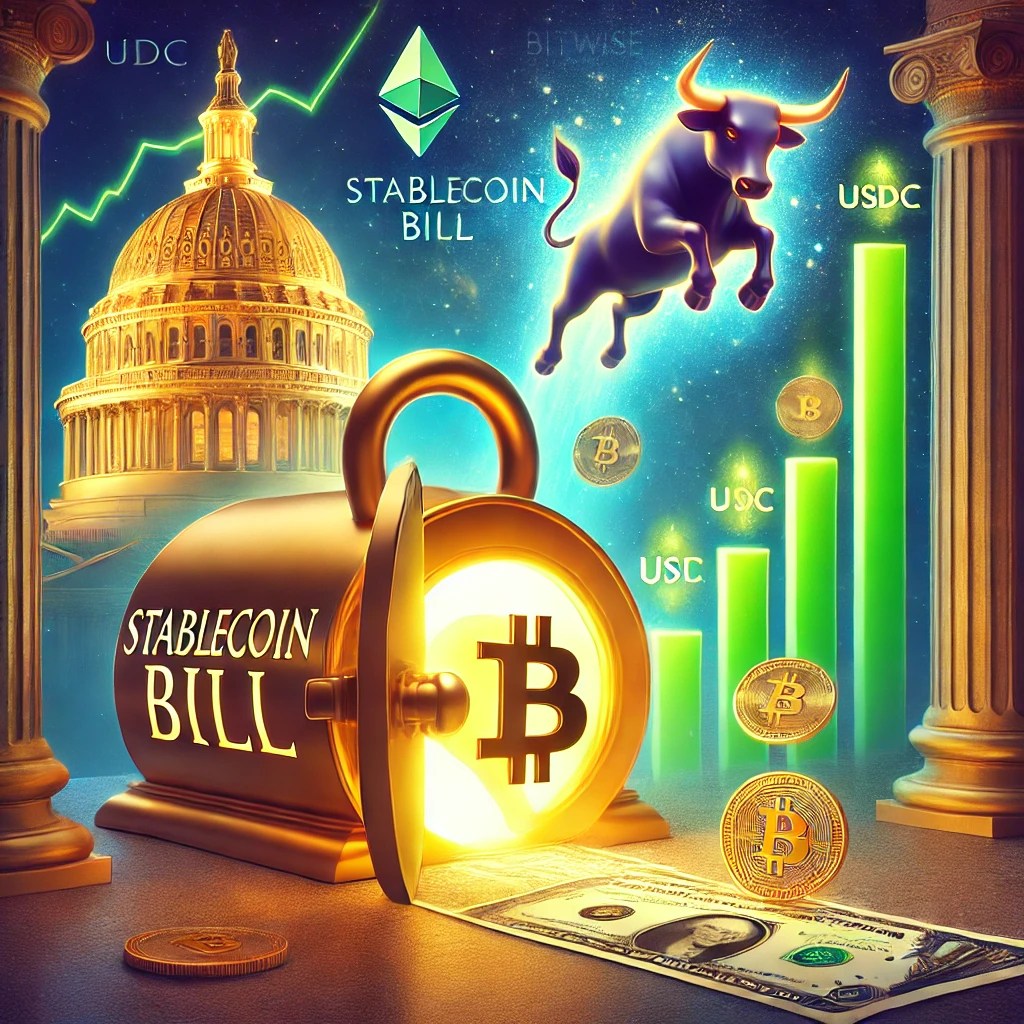A Crypto Bull Market Ahead? Bitwise CIO Says This Stablecoin Bill Changes Everything

The United States Senate made a significant move toward regulating the crypto asset industry this week by advancing the GENIUS Act, a bill aimed at establishing a comprehensive framework for stablecoins.
The measure passed the cloture vote with bipartisan support, including a notable shift from 16 Democrats who had previously opposed it. Bitwise Chief Investment Officer Matt Hougan sees the development as potentially laying the groundwork for a prolonged digital asset bull market.
Stablecoins Take Center Stage in Regulatory Push
According to Hougan, the GENIUS Act marks one of the most impactful pieces of regulatory progress for crypto in US history, perhaps even more influential than the approval of spot Bitcoin ETFs earlier this year.
He explained in a note to clients that this legislation could normalize the use of blockchain-based financial tools beyond digital currencies, ultimately pushing institutional adoption. Hougan framed the bill’s advancement as a critical moment akin to “Wall Street and crypto getting married.”
The GENIUS Act outlines strict federal guidelines for stablecoin issuers. It mandates that stablecoins be backed one-to-one with US Treasuries or dollar equivalents, that issuers register with federal banking regulators, and that issuers apply anti-money laundering protocols.
The legislation also calls for regular audits to ensure compliance and transparency. Hougan highlighted the significance of these standards, noting that they could enable major financial institutions such as JPMorgan or Bank of America to confidently issue stablecoins.

Currently, the stablecoin market is valued at more than $200 billion, despite existing without clear federal regulation. Hougan believes that a formal legal framework will allow the market to scale further, potentially reaching $2.5 trillion, by bringing in traditional financial institutions, retailers, and global commerce networks.
He envisions a future where stablecoin transactions are as common as credit card payments or peer-to-peer apps like Venmo, supported by incentives such as merchant discounts and faster settlement times.
Implications Beyond Stablecoins
While the bill directly addresses stablecoins, Hougan emphasized its broader implications for the crypto sector. By enabling dollar movement over blockchain networks, the bill opens the door for other asset classes, such as stocks, bonds, and real estate, to be tokenized and transferred in similar fashion.
This possibility, he said, is central to the long-term investment case for blockchain networks like Ethereum and Solana, as well as for decentralized finance platforms like Uniswap and Aave. Hougan likened the impact of the stablecoin legislation to that of the Bitcoin ETF approvals, which served to validate crypto as a legitimate investment vehicle.
In a similar fashion, he argues, the GENIUS Act will validate blockchain-based finance as a viable infrastructure for the broader financial system. If the bill is finalized and enacted in the coming months, it could be the catalyst for institutional adoption on an entirely new scale. Hougan wrote:
This is the fundamental thesis for investing in non-bitcoin crypto assets like Ethereum, Solana, and the like: that $100+ trillion of financial assets will eventually move over blockchains. Passage of this bill starts that ball rolling. I suspect the impact here will be similar to the impact of bitcoin ETFs.
Featured image created with DALL-E, Chart from TradingView

Editorial Process for bitcoinist is centered on delivering thoroughly researched, accurate, and unbiased content. We uphold strict sourcing standards, and each page undergoes diligent review by our team of top technology experts and seasoned editors. This process ensures the integrity, relevance, and value of our content for our readers.



